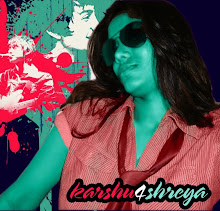The best example of reality show turning life into fantasy is of the Prince Dance Troupe from the back lanes of Berhampur, Orissa. Comprising an unlikely mix of dailywage earning labourers including two polio-stricken children – the troupe overcame grinding odds to win the ‘India’s Got Talent’ reality show last year on Colors channel.
After that there was no looking back for the group, which will now perform at the opening ceremony of the Commonwealth Games in October.
Explaining what makes reality shows such a success in small towns, Sanjay Gupta, chief operating officer of STAR India, told IANS: ‘These shows are opportunities to break free from where you are… And the desire to break free in small towns is higher because there you don’t get enough exposure. You know you can’t fulfil your ambitions by staying there and that is driving a lot of people to participate in talent shows.’
‘A large part of this country wants to grow, and people are looking for opportunities to get bigger platforms. When they get a platform – be it for singing, dancing or cooking – it is the opportunity to get a better life.’
The first few reality shows that provided big dreams for small town people were ‘Meri Awaz Suno’ on Doordarshan and Zee TV’s ‘Hero Honda Sa Re Ga Ma’ that respectively produced singers like Sunidhi Chauhan and Shreya Ghosal in 1996.
In recent times Sony’s ‘Indian Idol’ saw a virtually unknown Abhijeet Sawant becoming a celebrity after winning the crown. The second season winner Sandeep Acharya from Bikaner in Rajasthan too became well-known.
Debojit Saha, a struggling singer from Silchar, Assam, got a new lease of life after winning Zee’s ‘Sa Re Ga Ma Pa’.
Prashant Tamang from Darjeeling, Amit Paul from Shillong, Emon Chatterjee from Kolkata and Antara Mitra from Maslandapur, a West Bengal town in North 24-Parganas, too realised their big dreams on different seasons of ‘Indian Idol’.
With time reality shows became bigger and better.
After musicals came talent hunt shows like ‘Fame Gurukul’, ‘India’s Best: Cinestars Ki Khoj’ and reality shows ‘Bigg Boss’, ‘Roadies’, ‘Chotey Ustad’ and ‘Laughter Challenge’.
Zee reportedly invested Rs.100 crore in ‘Cinestars Ki Khoj’. The catch was the winner will get to star in three films to be produced by Zee Telefilms for a combined budget of Rs.20 crore.
According to reports, in the capital alone, 21,000 people turned up for the auditions while Mumbai saw a crowd of 12,000. Other cities didn’t lag behind with 6,000 participants on an average including aspirants from places like Pathankot and neighbouring towns.
The window for the not-so-fortunate lot also broadened with shows like ‘Chak De Shahar Di Kudiyaan Te Gali De Gunde’ and ‘Zing Ne Bana Di Jodi’ that featured a group of small town boys trying to woo uptown girls.
‘Most of the talents are found in the small town. I have been organising workshops in the smallest cities possible and to my surprise I have seen amazing talents there,’ said Sandip Soparrkar, who judged ‘Chak De…’ on 9X.
‘In bigger cities, opportunities are aplenty, but small town people have less options. And programmes like ‘Chak De’ really give the small towners a big platform to showcase their talent,’ added the internationally acclaimed choreographer who is currently in the judges’ panel of Zee TV’s children’s dance reality show ‘Dance India Dance Li’l Masters’.
Anurag Bedi, business head, Zing, told IANS: ‘What is more filmy than a love story of a small town guy and a high society girl? This concept had given birth to our reality show ‘Zing Ne Bana Di Jodi’ that increased our connect with audiences in smaller towns.’
‘Zing Ne…’ had eight couples being tested on grounds of compatibility for the grand prize of Rs.200,000 for a pair and an opportunity for them to host a show on the channel.
Winning is not important.
There are some like Meiyang Chang from Dhanbad in Jharkhand and Ankita Lokande from Nagpur who made it big despite losing the crown.
Raju Srivastava, who hails from Kanpur, worked with Kalyanji Anandji, Bappi Lahiri and Nitin Mukesh for stage shows, but he got his due only after participating in the comedy show ‘The Great Indian Laughter Challenge’.
The small screen is knocking vigorously at the doors in small cities.







